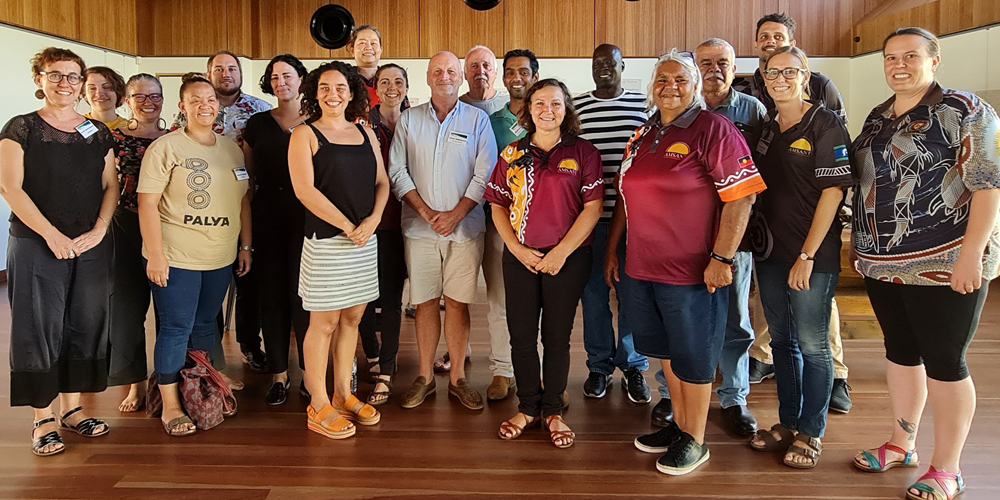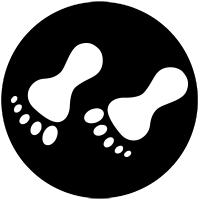
Workforce Development Support Unit (WDSU)
The Workforce Development Support Unit is a nation-wide project to determine a comprehensive picture of workforce training and support needs across our sector, and to identify gaps for further learning opportunities.
Our needs-analyses have identified four main areas for the WDSU to support across our member services and their Social and Emotional Wellbeing (SEWB) and Alcohol and Other Drugs (AOD) teams. The four areas are: Training, Cultural Competency, Staff Support and Systems Support.
The WDSU now works closely as a part of the greater SEWB team to tailor and deliver training workshops, forums, and holistic support for organisations across the NT, whether it’s big or small, regional, or remote.
The beating heart of these collaborations is the recognition of the existing strengths that health services have in knowledge, culture, skills, and behaviours. From here, we explore and identify the gaps that exist for further learning, and further improvement of health service delivery.
Why choose us?
Our team is committed to supporting the SEWB of the ACCHSs workforce, and the communities they service across the NT through the delivery of high-quality training and support.
We provide both face to face and online support including professional networks and communities of practice and can adapt our training to the health career stages and needs of your workforce.
Our training and support are locally developed and Aboriginal led, drawing from a team with many years of knowledge and experience, strong cross-cultural capabilities, and a range of professional backgrounds.
We adopt an interactive yarning approach to our workshops and art resources and case studies are often used as part of activities to elaborate theory into practical examples.
Current training
Case Notes and Case Management
This workshop on best practice approaches to case notes and management is usually held over 1-2 days. Through an interactive yarning approach, we can guide staff through some the following topics:
- Creating safety, regulation and co-regulation
- Professional boundaries
- Basics of case management
- Implicit bias and deep listening
- Case notes and safety planning
- Professional standards and team communication
- Worries and barriers to approaching services
- Understanding what supports are available
- Vicarious trauma, burnout and self-care
SEWB and Self-Care
This workshop provides an introduction to Social and Emotional Wellbeing and considers how SEWB workers can support their own wellbeing in their work. Some of the topics covered include:
- History of SEWB in Australia and the NT
- Social, political and historical determinants of health
- Holistic care and working effectively in teams.
- Understanding the role of a SEWB worker
- Self-reflection & awareness
- Tools and techniques to support our self-care.
Training under development/review
Narrative Practice
A compassionate and solution-focused approach to doing counselling and community work, this workshop provides an introduction to working from a narrative approach.
This approach is based in deep listening and curiosity, we look at how to build connection, and understand the story from the perspective of communities and people in their own words. Narrative approaches:
- Centre people as the experts in their own lives
- Views problems as separate from people
- Assumes people already have the strengths, skills, values and abilities that can help them to reduce the influence of problems in their lives.
Narrative practice can help people in working one-on-one, with families, or in addressing bigger social and community concerns.
Domestic, Family and Sexual Violence
This workshop steps through how to recognise and respond to family violence. Developed by Aboriginal staff from the SEWB team, the training is usually held over two days and draws from a trauma-informed practice approach. Topics covered may include:
- What is Domestic, Family and Sexual Violence (DFSV)
- How trauma changes the brain and influences stress states
- Exploring ways to self-regulate and heal
- Supporting Aboriginal and Torres Strait Islander people experiencing DFSV
- Confidentiality and Mandatory reporting requirements and obligations
- Safety Planning




